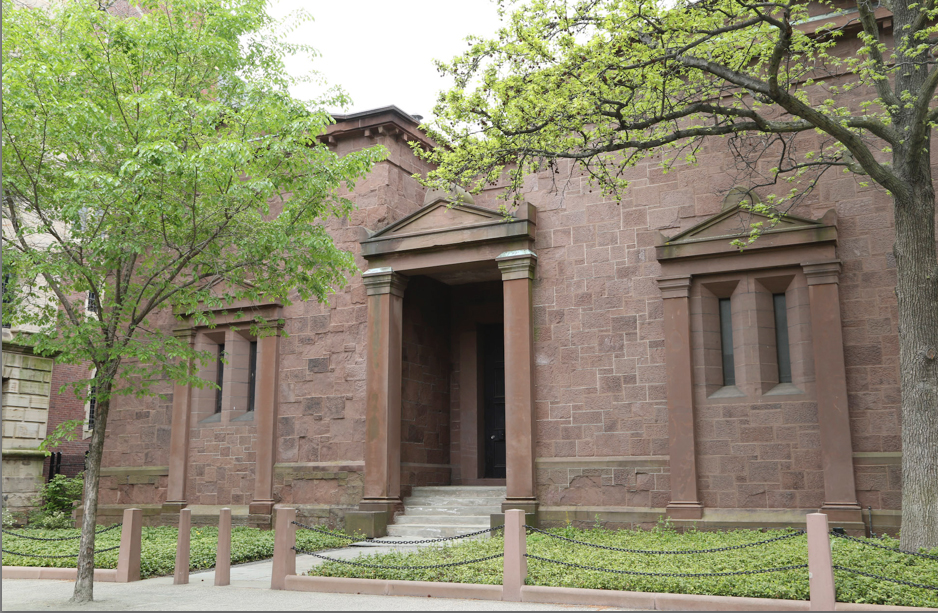
Printed on thick paper and enclosed in elegant envelopes sealed with wax, tap letters have been sent out to members of the junior class over the past few weeks, marking the beginning of the senior society recruitment process. Unlike in past years, however, this year the entire tap process will be accessible to all interested juniors.
Last April, the newly founded Yale Society Initiative, with the support of private donors, helped establish seven new senior societies to accommodate rising student interest. All rising seniors who expressed a desire to participate in a society were matched with an affiliated group. But the initiative was not announced until a few days before Tap Night last year, so students who signed up to participate were largely those who had not already been tapped for an existing society. This semester, the initiative is offering its application process — which opens Monday — several months before Tap Night. Students will be able to express their interest all the way through April, even before they know if they will be selected by a society outside of the initiative. The goal is to ensure a “more fair, pleasant and transparent” experience for all, according to the initiative’s website.
“We believe that this [tap] process will allow the society system to best fulfill its mission of creating unique spaces that facilitate new friendships and personal growth while minimizing the traditional system’s divisive and exclusionary aspects,” a Feb. 23 email from the Yale Society Initiative to all juniors read.
The choice to completely opt out of society tapping, which was available to juniors last year, has not yet been made available. Only 12 students chose to opt out last spring, and student leaders said they are unsure if the option will be offered again this semester.
Before the initiative’s establishment, Yale had 43 senior societies composed of approximately 600 students — roughly half the senior class. The seven new societies created last spring were able to accommodate about 100 more seniors, and the initiative also pledges to help facilitate the creation of new ones this semester if demand exceeds the current number of societies. The application form asks applicants to submit biographical information as well as a personal preferences questionnaire to ensure that they will be placed in the society that most suits them.
This new form of recruitment, the email emphasized, will hopefully reduce the stress and anxiety often associated with the tap process.
Nevertheless, of the eight juniors interviewed by the News, only one said he would sign up for the initiative. That junior said he is mainly curious about the new process and wants to understand it better, but given the option, he would join other societies over the ones affiliated with the initiative. Currently, six societies are listed as participants on the initiative’s website.
Two other juniors and one senior interviewed also questioned the purpose and success of the initiative, especially since it removes the exclusivity component of joining a society.
“[The Yale Society Initiative] is good for people who really want to join a society,” one junior who asked to remain anonymous said. “But it takes away the enchantment of being invited and personally selected. The appeal is lost in the new procedure.”
Still, other juniors spoke positively of eliminating the exclusive air of senior societies. Everyone who is interested should be given the chance to participate, they said.
“Personally I don’t think I will partake in [the new initiative],” James Landefeld ’17 said. “But for those who might otherwise be excluded, it’s great to have a more inclusive process.”
The Yale Society Initiative is in charge of the opt-in process, but according to the initiative’s chairman and founder and former Yale College Council President Danny Avraham ’15, the choice to completely opt out of society tapping — introduced last spring — is separate. It remains unclear if opting out of the tap process will continue to be an option, as only 12 students chose to opt out last spring, and the option has not yet been made available to this year’s juniors.
Last year, the opt-out option was outlined in a Feb. 16 email from then-Junior Class Council President Emily Van Alst ’16. Van Alst told the News on Sunday that the 2014–15 co-secretaries of the Senior Class Council had asked her to send an email to the junior class offering the choice to opt out of the tap process for those who had no interest in participating. The opt-out choice was organized by the senior class, Van Alst said, and she does not know if it will be offered again this spring.
JCC President Ewurama Okai ’17 said the society process does not fall under her purview, and she cannot say if the choice will be available to juniors again this year.
Still, Van Alst said both the opt-in and the opt-out processes cater to different needs among the rising senior class.
“There are certain people on this campus who don’t want to be part of the society experience, and there are some who really do,” Van Alst said. “The new [Yale Society Initiative] is great for those people who want to join societies, and the opt-out choice can be great for others who might be too busy or don’t want the pressure. It goes either way.”







